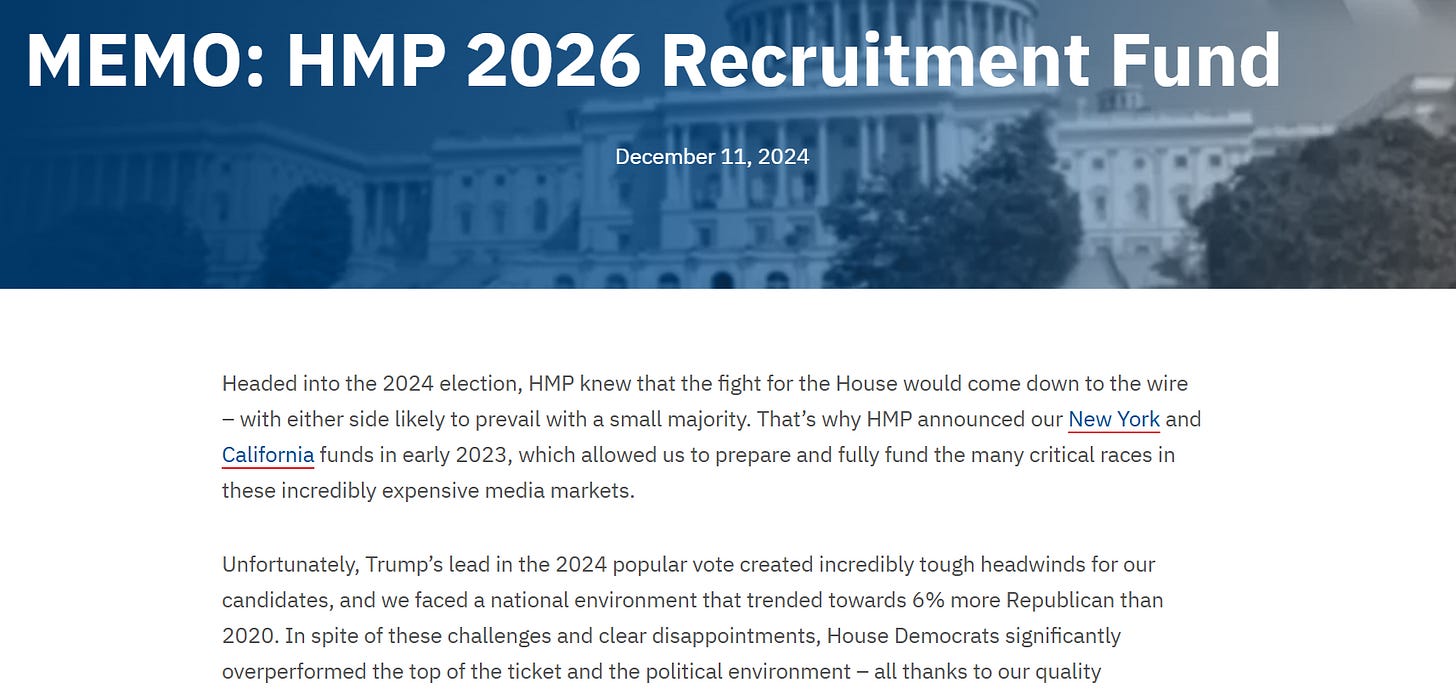Fight Now, Win Later
Why Democrats Must Start Early, Target Red Districts, and Counter GOP Strategy to Win in 2026
Two aspects of traditional Democratic election strategies frustrate me the most—though the list is long. First, they seem to wake up only a few months before the election to start campaigning. Second, they deliberately avoid red states and districts, surrendering ground without a fight.
Did President Biden’s campaign team not realize that immigration would be a significant issue come election season? MAGA is driven by anti-migrant sentiment. Every right-wing nationalist party around the world revolves around that same theme. Dems should not have tried to push a bipartisan immigration bill during an election year. Instead, they should have done it within the first 100 days of their administration. You neutralize your opponent's biggest strength first, and then you move on to the rest.
That’s how you win. Waking up six months before voters head to the polls is a bad idea. The United States is in the midst of becoming a propaganda state. Therefore, the opposition must remain in campaign mode 24/7.
I never understood why the Democrats refuse to compete in red and deep-red states and districts. Raising millions of dollars for Senate candidates in Texas, Florida, and North Carolina is a massive waste of time and energy if you’re not also competing in red districts two years before the Senate races come around.
You need to maximize returns in blue districts and minimize losses in red districts. Every year, the circle of competition must expand, little by little—percentage by percentage. There’s no need for a full-scale, 100% expansion. What’s essential is consistent, steady growth—5% every year.
If you’re not expanding, you’re shrinking.
This is why I was glad to see a Super PAC aligned with House Minority Leader Hakeem Jeffries announce a plan to target 29 Republican-held districts (with victory margins ranging from 0.2 points to 14 points) and to closely monitor 16 more Republican-held districts (with margins between 12 points and 29 points).

By starting early, Democrats can invest in these districts, recruit strong candidates, and show voters they are alive, well, and fighting. More importantly, this early presence will help identify what resonates on the ground and what doesn’t.
Midterms are almost always tough for incumbents.
Opposition is easy—you can bury internal differences and focus on the ruling party.
Governance, however, is hard. It means managing internal conflicts while constantly being scrutinized for your actions. The GOP has made things even harder for itself by lying its way to power this year. They claimed no connection to Project 2025, only to fill their administration with its architects. They promised to lower grocery prices but are now saying it’s too difficult. They vowed to end the Ukraine-Russia war in 24 hours but now admit it’s not possible. They swore never to touch Medicare, yet now they’re seeking to gut Medicare, Medicaid, and Social Security.
Incoming Senate Majority Leader John Thune said tax cuts will be his number one priority, and failure is not an option. Wherever they plan to pull the money from will tell a very different story to the millions of seniors who voted for them, believing they wouldn’t go down this road.
Imagine Democrats rallying in close districts in Iowa and Arizona after the GOP passes those bills. Now, imagine them doing the same thing in March 2025 before the GOP even introduces the bill in the House. See the difference? By starting early, they can keep voters informed about what the GOP is doing, gather feedback, and take it right back to the House.
This gives Democrats the chance to explain to voters what the GOP is up to, expose GOP propaganda and lies, and show what Democrats are doing to counter it. You do that first, and only then can you convince significant numbers of voters to switch sides during the midterms.
This is a strong start by Hakeem Jeffries. He’s on the right track, and he needs to build on this momentum.





Thank goodness Jeffries or his pac I guess is looking ahead. Now all we need to do is elect Ben Wikler as DNC chair and we're almost golden.
There were so many individual campaigns, state parties, PACs and then the DNC, DCCC and DSCC competing for funds daily in my inbox and texts. It would be helpful if groups coordinated their messages to help up- and down-ballot Democratic candidates. Or a more efficient sharing of funds. I don’t mind starting donations early, but I’d like them to be well spent. Good conversation to have now.